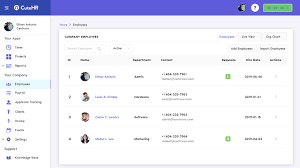Hospital Alcohol Detox: Safe, Medically Supervised Recovery for Alcohol Withdrawal

When alcohol dependence is severe, attempting to quit without medical supervision can be dangerous—even life-threatening. That’s where a Hospital Alcohol Detox program becomes essential. In a hospital environment, patients gain access to 24/7 medical care, comfort, and professional support during withdrawal. These programs are designed to manage the most acute stages of alcohol withdrawal, reduce complications, and prepare individuals for the next steps in recovery.
1. What Is a Hospital Alcohol Detox?
A Hospital Alcohol Detox refers to the process of medically supervised detoxification in an inpatient hospital setting. This includes:
-
Comprehensive medical assessment
-
Continuous monitoring of vital signs
-
Administration of medications such as benzodiazepines to manage withdrawal symptoms
-
Nutritional support (e.g., thiamine, folic acid) to restore deficiencies
-
Dynamic adjustment of treatment according to patient response
Most protocols aim for a safe 3- to 7‑day detox stay; longer if medically necessary and justified by patient condition
2. Why Choose a Hospital Alcohol Detox Setting?
Alcohol withdrawal can progress rapidly. Symptoms range from mild anxiety or tremors to severe reactions like seizures or delirium tremens (DTs), which occur in a minority but can be fatal
A Hospital Alcohol Detox provides:
-
Immediate intervention in emergencies
-
Constant monitoring that outpatient options can’t match
-
Safe management of unstable vital signs
-
Support with hydration, nutrition, and mental symptoms
The hospital setting also reduces environmental relapse triggers and ensures continuity of care into rehabilitation programs.
3. The Alcohol Detox Process in Hospital Settings
A. Admission and Assessment
Upon arrival, healthcare providers evaluate substance use history, co-occurring medical conditions, severity of dependence, and withdrawal risks. This forms the basis of a carefully curated detox plan
B. Medication Management
-
Benzodiazepines (e.g., Librium, Valium) to alleviate withdrawal intensity and prevent seizures
-
In some cases, adjunct medications such as anticonvulsants, beta-blockers, clonidine, or antipsychotics assist with specific symptoms or agitation
C. Continuous Monitoring
Vital signs, fluid balance, and neurological status are checked regularly. Withdrawal severity is reassessed multiple times daily, and medications adjusted accordingly
D. Physical and Nutritional Support
IV fluids and vitamin therapy (notably thiamine, folate) address dehydration and prevent complications such as Wernicke encephalopathy
E. Transition to Ongoing Treatment
Once medically stabilized, patients are guided toward inpatient or outpatient rehabilitation, therapy, or support groups. A hospital stay often serves as a gateway into comprehensive treatment plans
4. Benefits of Hospital Alcohol Detox Programs
-
Medical safety: Emergencies like seizures and severe DTs are managed promptly
-
Symptom relief: Medications ease discomfort and reduce relapse risk
-
Supportive environment: Removed from triggers, patients concentrate on stabilization
-
Transition planning: Clinicians assist with referrals to rehab facilities or support services
-
Insurance coverage: In many cases, hospital detox is covered when determined medically necessary
5. Comparing Inpatient vs. Outpatient Detox
Hospital-based Hospital Alcohol Detox is the gold standard when:
-
Physical dependence is severe
-
Past withdrawal complications occurred
-
There are mental health issues or high-risk features
-
Safe outpatient settings are unavailable
Outpatient detox can be viable for mild dependence, without serious complications, and with strong outpatient care follow up. However, the structured environment of a hospital is safer for most cases of moderate to severe withdrawal.
6. Symptoms Monitored During Hospital Alcohol Detox
Common withdrawal symptoms addressed include:
-
Anxiety, agitation, tremors, insomnia
-
Elevated blood pressure and heart rate
-
Sweating, nausea, irritability
-
Hallucinations or confusion
-
Seizures or delirium tremens in severe cases
Symptoms typically emerge within 6–24 hours of cessation, with seizure risk peaking around 24–36 hours and DTs around 48–72 hours
7. Integration With Rehabilitation & Ongoing Care
Hospital-based detox is only the first phase of recovery. After medical stabilization, patients are guided into:
-
Inpatient rehabilitation programs offering therapy and structured recovery
-
Outpatient clinics or therapy with counseling and medical follow-ups
-
Support groups, such as Alcoholics Anonymous, for peer and psychological support
This continuum of care allows patients to transition smoothly from detox into long-term recovery.
8. Real World Success & Facilities
-
Willingway Hospital in Georgia offers hospital-unit detoxification as part of a broader program including residential treatment
-
Brighton Hospital in Michigan provides inpatient detox followed by rehab services under skilled medical supervision
Such institutions highlight the trend of combining detox with ongoing recovery care for better outcomes.
9. Challenges and How Hospital Alcohol Detox Helps Overcome Them
Challenges without hospital care include:
-
Lack of emergency response capability for seizures or severe DTs
-
Higher relapse risk in unmonitored settings
-
No physician-led medication adjustments
-
Potential for electrolyte imbalances or malnutrition going unaddressed
A Hospital Alcohol Detox addresses all these risks through constant supervision, appropriate medication, and physical stabilization protocols.
10. Frequently Asked Questions
Q: How long does a Hospital Alcohol Detox stay last?
A: Typically 3–7 days, extendable up to 5+ days when medically necessary
Q: Will insurance cover inpatient detox?
A: If the stay is medically necessary to prevent complications, insurance including Medicare—often covers hospital detoxification.
Q: Is relapse prevention handled during detox?
A: Detox alone isn’t enough. Continued therapy and relapse prevention strategies are implemented following stabilization
Q: How safe is detox for older adults or those with other conditions?
A: Hospital detox allows tailored medical support for those with chronic illnesses or age-related vulnerabilities.
✅ Conclusion: Hospital Alcohol Detox Offers a Lifesaving First Step
For individuals struggling with severe alcohol dependence, a Hospital Alcohol Detox is not just beneficial—it’s often essential. It provides a medically controlled environment, immediate response to withdrawal emergencies, and professional guidance into ongoing treatment plans. This inpatient approach mitigates severe symptoms, supports stabilization, and opens doors to long-term recovery pathways.




